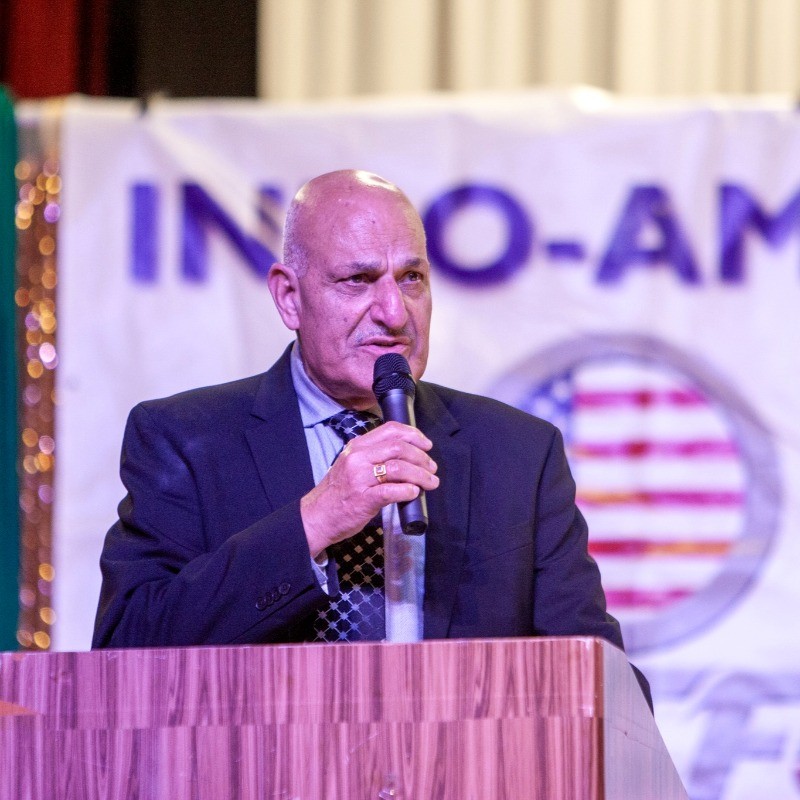U.S.-India relationship— A betrayal of shared democratic values?
The recent imposition of tariffs on India by the current U.S. administration has sparked deep emotional distress among Indian Americans, who feel sidelined.
 File photo. / REUTERS
File photo. / REUTERS
On the 79th Independence Day, August 15, 2025 we pause to celebrate India—not just as a nation but as a living, breathing paradox that captivates hearts and defies definitions; known as a land of diversity where people of different castes, creeds, religions, cultures, and beliefs live together.
For centuries, before India gained independence, Indians suffered too much under British rule. But despite everything, India became the 5th largest economy in 2022.
To some, India may appear as chaos, a kaleidoscope of colors, sounds, and stories that overwhelm the senses. But to us, it is home—a symphony of life that resonates in our souls.
In our diversity lies our unity. From the snow-capped Himalayas to the sun-kissed shores of Kanyakumari, from the deserts of Rajasthan to the lush hills of Assam, we are bound by an unspoken bond. We are Hindus, Muslims, Sikhs, Christians, Jains, Buddhists, and countless others, speaking a thousand languages, yet singing the same anthem of freedom. Our festivals—Diwali’s lights, Eid’s feasts, Christmas carols, and Holi’s colors—paint a canvas of togetherness. India is not a monolith; it’s a mosaic, each piece distinct yet essential to the whole.
Also Read: The West’s misreading of Modi: Democracy, not dictatorship
This is not blind patriotism. It’s the complexity of loving a nation that refuses to be simple. Our freedom, won through the sacrifices of countless heroes—Gandhi’s resolve, Bose’s fire, Bhagat Singh’s courage, and the unsung millions who marched for liberty—is a legacy we carry with pride. On August 15, 1947, we broke the chains of colonialism, but the true journey of independence continues in our quest for equality, justice, and progress.
While the Indian diaspora is ready to celebrate Independence Day of progressive India and the glorious history of its people, culture and achievements, some of us who have been engaged in building Indo-US partnership for decades, find ourselves in a confused state of betrayal.
The recent imposition of tariffs on India by the current U.S. administration has sparked deep emotional distress among Indian Americans, who feel sidelined. These tariffs, perceived as punitive, have strained the historically strong U.S.-India relationship, leaving many in the Indian American community questioning the administration’s priorities. The measures are seen not only as an economic blow but also as a symbolic dismissal of India’s strategic importance, fostering a sense of abandonment among a diaspora that has long championed bilateral ties.
Also Read: Basmati to dal: US tariffs set to pinch grocery budgets of Indian Americans
Compounding this sentiment is the administration’s apparent elevation of Pakistan, a nation with a complex history of terrorism-related concerns, to a favorable status. This move has intensified feelings of injustice, as Indian Americans view it as rewarding a country that has often been at odds with U.S. and Indian interests. The contrast is stark: India, a vibrant democracy and key economic partner, faces trade penalties, while Pakistan, despite its controversial record, appears to gain diplomatic favor. This perceived double standard has fueled frustration, with many feeling that India is being unfairly cornered.
For Indian Americans, this isn’t just about economics—it’s personal. The community, which numbers over 4 million and contributes significantly to U.S. innovation and culture, feels its loyalty and advocacy for stronger U.S.-India relations have been overlooked. The tariffs and the tilt toward Pakistan are seen as a betrayal of shared democratic values, leaving Indian Americans grappling with a sense of alienation and urging a reevaluation of policies to restore balance and fairness in U.S. foreign relations.
As we hoist the tricolor today, let’s help build an India where every citizen thrives, where diversity is our pride, and where resilience shapes its future. Let’s continue to build a strong U.S.-India relationship so that both countries thrive.
The author is a published writer and film producer.
(The views and opinions expressed in this article are those of the author and do not necessarily reflect the official policy or position of India Abroad)
_page-0001.jpg)
-10”-x-5.jpg)

 Jeevan Zutshi
Jeevan Zutshi

.jpg)
.jpg)





.jpg)

Comments
Start the conversation
Become a member of New India Abroad to start commenting.
Sign Up Now
Already have an account? Login